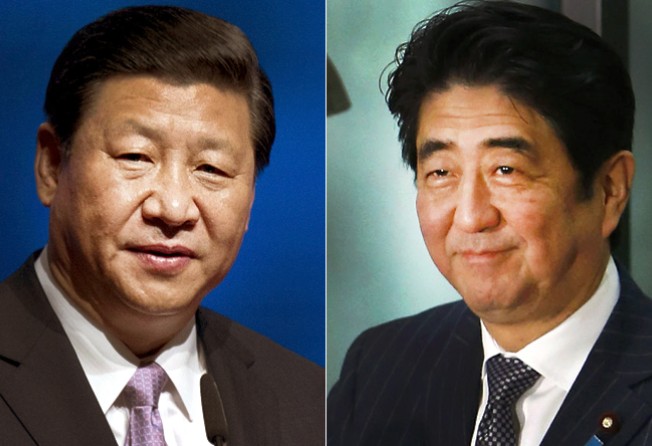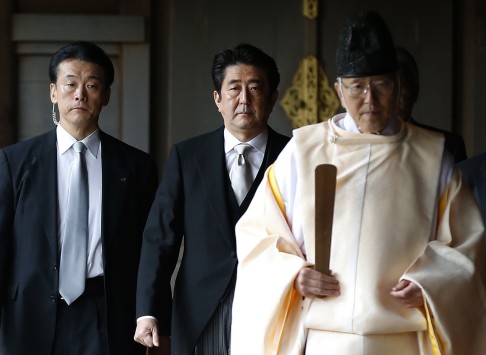Japan wants talks with China, Korea on Yasukuni Shrine

Japanese Prime Minister Shinzo Abe said Monday that he wants to explain to leaders in China and South Korea about his visits to the Yasukuni Shrine in Tokyo, which honours the country’s war dead, but Beijing again called on him to correct his views on Japan’s role in World War II.
Abe said that Japan has not made any direct overtures, but he hopes the leaders can meet to help resolve antagonism over territorial disputes and historical issues.
“At the moment, there is no plan for a summit meeting, but since there are some difficulties and issues we should be speaking together without setting any preconditions,” he told reporters after making a new year’s visit to the Grand Shrine of Ise, in western Japan.
“I would really like to explain the intent of my visits to the Yasukuni Shrine directly to them,” Abe said. “We are not making any direct approach on this, but the door to dialogue is open. I would like to hold Japan-China and Japan-South Korea summit meetings.”
Japan colonized Korea and occupied parts of China before and during World War II and that often brutal legacy taints relations with its neighbours decades later. China and South Korea reacted angrily to Abe’s Dec. 26 visit to the Yasukuni Shrine in Tokyo, where 14 class A war criminals are enshrined among the 2.5 million war dead.

On Monday, Chinese Foreign Ministry spokeswoman Hua Chunying said that to improve relations with Beijing, Abe “needs to correctly view and deeply reflect on the Japan’s militarist history of external invasion and colonialism, show sincerity and make concrete efforts to improve ties with neighbouring countries.”
“Judging from his moves, Prime Minister Abe is hypocritical when he pays lip-service to improving relations with China. It is he himself who closed the door to dialogue with China,” she said in a daily briefing.
Abe has said Japan should never wage war again, though he favours strengthening the military and revising the country’s pacifist constitution. That agenda is popular with some Japanese, though polls show the majority are more concerned about the economy.
“I am confident that we can gain understanding ... if we firmly explain the Abe administration’s pro-active pacifism,” he said.
After a year in office, Abe said he was confident that the economy was in a stable recovery and he exhorted the public to persevere in overcoming hardships. He vowed to cushion the economy from any adverse impact due to a sales tax increase due to take effect April 1.
“We are at the point where we may escape from 15 years of deflation and we must not let it slip away,” said Abe, who is urging companies to raise wages to help offset the inflation resulting from ultra-loose monetary policies intended to rev up growth.
“I want a fresh start with a fighting spirit and sense of urgency,” he said.